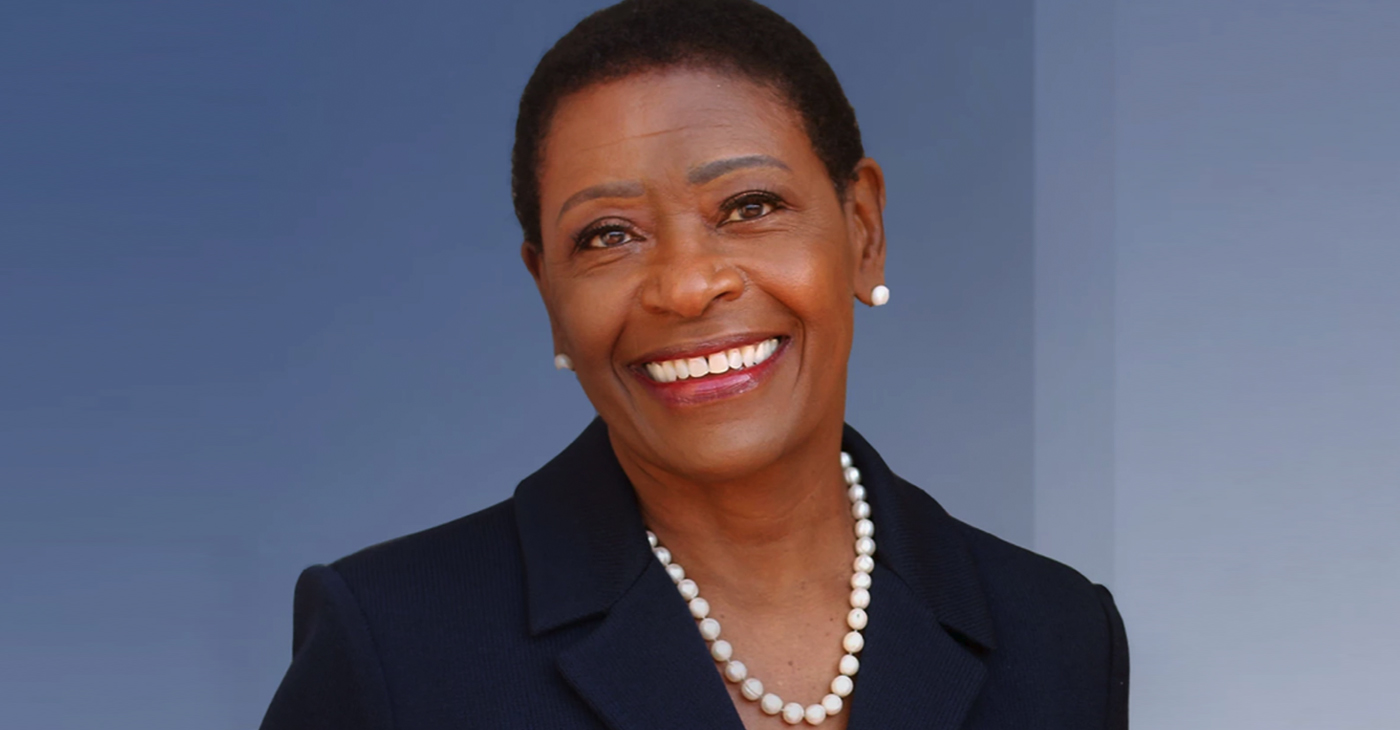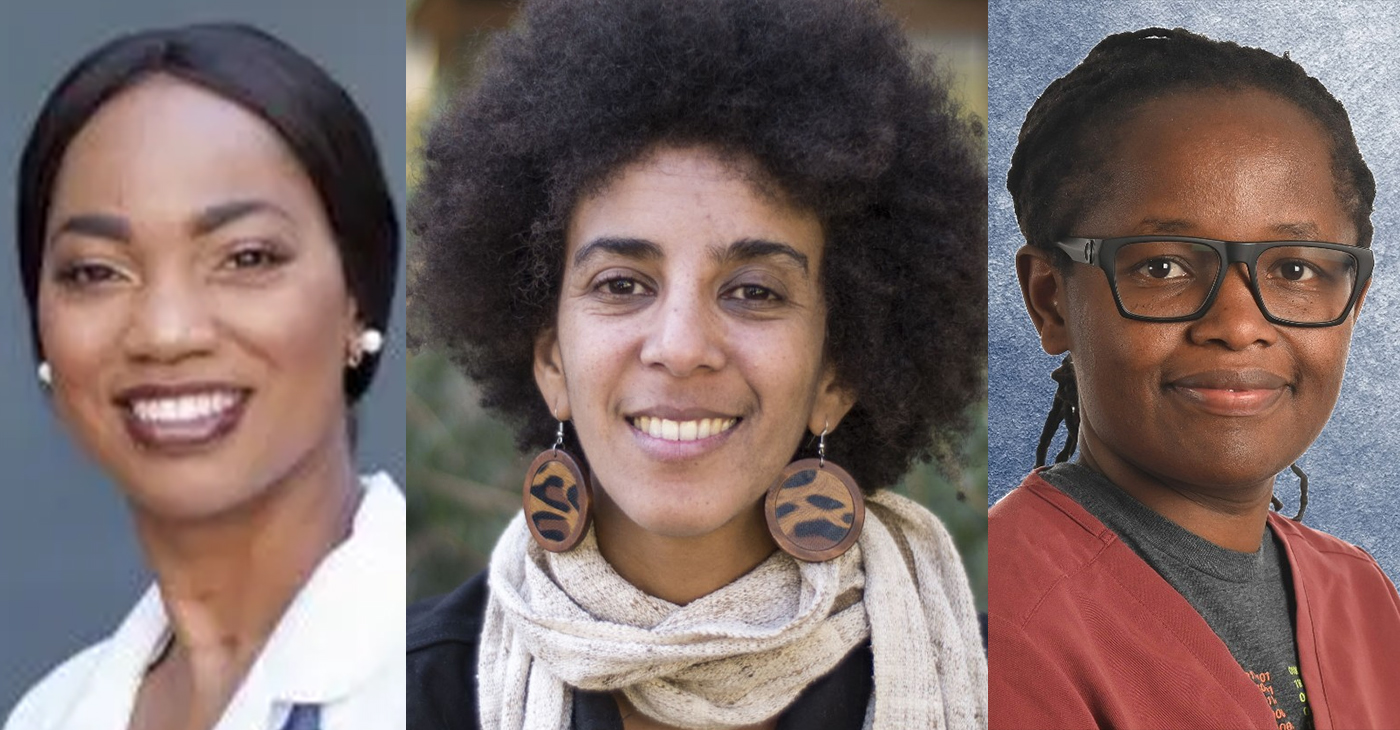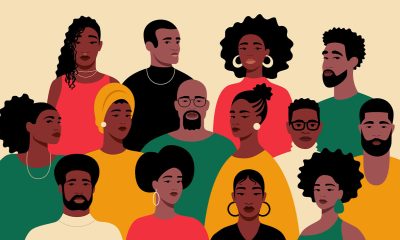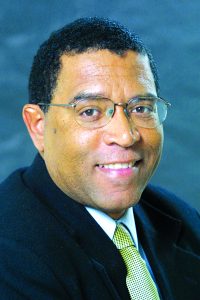Activism
State’s Only Black Female D.A. Announces Decades-Old Cold Case Solved
During an emotional news conference, a representative of the three agencies said Jerry Lee Henderson murdered the Contra Costa Community College student inside her Richmond home. Chief Tirona said Henderson had died 11 days after the killing. He was identified through DNA left at the scene.

By Antonio Ray Harvey, California Black Media
Contra Costa District Attorney Diana Becton, California’s only Black D.A., recently joined the state Attorney General Rob Bonta and Acting Richmond Police Chief Louie Tirona to announce that they have identified the man who killed 28-year-old Meekiah Wadley in 1999.
During an emotional news conference, a representative of the three agencies said Jerry Lee Henderson murdered the Contra Costa Community College student inside her Richmond home.
Chief Tirona said Henderson had died 11 days after the killing. He was identified through DNA left at the scene.
“I know it’s been a long 22 years since this heinous crime was committed, and justice doesn’t always come swiftly,” said Becton, speaking at a news conference last week. “Today’s announcement is a major testament to the determination of our law enforcement partners, forensic scientists, and investigators who continued to work on this case for over 20 years and who never gave up the search for the truth.”
Investigators solved the murder using California’s familial DNA search program.
Becton, who is on the ballot for the June 7 primary election, joins former Los Angeles County District Attorney Steve Cooley and Sacramento County District Attorney Ann Marie Schubert as California D.A.s who have used this technique.
Becton, 70, was in the fourth year of a 22-year run as a Contra Costa Superior Court judge at the time of Wadley’s death.
In September 2017, the county’s Board of Supervisors appointed her Contra Costa’s 25th district attorney, the first African American female to hold the position. In June 2018, the graduate of San Francisco State University and Golden Gate University School of Law was elected to a full term.
Becton said her priority is keeping the streets of Contra Costa County safe from dangerous and violent criminals. She says she is committed to safeguarding communities from crimes that threaten health, well-being, and livelihood, and protecting seniors from financial abuse. She is also committed to providing positive outcomes for youth.
Becton wants to serve Contra Costa’s 1.1 million residents for four more years. To “effect change” and ensure a “fair” judicial system, she said in an interview with California Black Media (CBM).
“What I’ve come to realize, though what seems like a short time some days, we’ve gotten a lot done. But the truth is that there’s so much more work to do,” she said.
‘This truly is, in terms of building sustainable change that is going to last, is a blueprint. It’s just not something that is going to happen in a short haul. I am running for reelection to continue the important work that we have started.”
Becton removed juvenile justice fees that severely affected low-income families of color, created the Reimagine Youth Justice Task Force to discover alternative solutions to juvenile justice, and established “Clean Slate Day” to allow former offenders opportunities to clear their criminal records.
In addition, Becton set up the first Human Trafficking Unit to fight the sex trade, addressed racial disparities, advanced youth justice by establishing the county’s first diversion program, and held law enforcement and public officials accountable.
In April 2021, Becton announced felony voluntary manslaughter and felony assault with a semi-automatic firearm, and unreasonable force charges against Danville police officer and deputy Andrew Hall in the shooting of Laudemer Arboleda in 2018.
Becton said the cop killed Arboleda, who was reportedly driving six miles per hour, “without lawful excuse of justification.” Becton achieved a conviction in that case.
In October 2021, Hall, who is White, was convicted by a jury of assault with a firearm and sentenced to six years in prison on March 4.
Six weeks before Hall was charged for killing Arboleda, shooting him 10 times, he fatally shot a Black unhoused and mentally ill man. The killing of Tyrell Wilson by Hall is still under investigation.
“Deputy Hall’s actions were not only a crime, but they tarnished the badge, and they harmed the reputation of all the good, hard-working police officers that work for our community,” Becton said in a statement.
Months after a jury convicted a former Minnesota police officer of killing George Floyd. It was the first time a Contra Costa cop was charged and convicted in a police-involved shooting.
Becton gets flak for easing the court’s burden by not prosecuting every low-level, non-violent crime, including offenders arrested with small amounts of drugs that come across her desk in an effort to reduce the “footprint” of mass incarceration.
“It’s quite interesting now that I have a historic conviction of an officer in Contra Costa County. But I would say, all and all, that we have mutual respect. I have 25 law enforcement agencies in 19 cities that I work with,” Becton told CBM. “It’s a loud opposition from the Sheriff who may not like the fact that one of his got convicted. But I am not deterred by that. It won’t stop me from being collaborative with these agencies when it is important to bring their voices to the table.”
As District Attorney Becton leads a prosecutorial office of approximately 200 lawyers, investigators, and staff.
Becton was raised in East Oakland by her self-employed beautician mother and her airplane mechanic father. Her journey to be an attorney, judge, and elected official was inspired by a civil rights movement she was able to personally witness in the late 1950s and 1960s.
“My commitment is to keep our community safe but also make this a fair system for everyone. That’s my priority,” Becton said. “I’ve made it a point that not only our traditional justice partners are at the table but people in the community are at the table as well. They (all) help us in problem-solving.”
Activism
AI Is Reshaping Black Healthcare: Promise, Peril, and the Push for Improved Results in California
Black Californians experience some of the worst health outcomes in the state due to systemic inequities, limited healthcare access, and exclusion from medical research. 16.7% of Black adults report fair or poor health, versus 11.5% of Whites. Black adults have the highest death rates from prostate, breast, colorectal, and lung cancer. Statewide, diabetes affects 13.6% of Black adults versus 9.1% of Whites, and 27% of Black adults over 65 have heart disease, compared to 22% of Whites. Life expectancy for Black Californians is about five years shorter than the state average.

Joe W. Bowers Jr.
California Black Media
Artificial intelligence (AI) is changing how Californians receive medical care – diagnosing diseases, predicting patient needs, streamlining treatments, and even generating medical notes for doctors.
While AI holds promise, it also poses risks, particularly for Black patients. It can provide faster diagnoses and expand access to care, but it may also misdiagnose conditions, delay treatment, or overlook patient’s critical needs. AI’s impact on Black patients depends on how biases in medical data and algorithms are addressed in its development.
“As we progress toward a society with increased use of AI technology, it is critical that the biases and stereotypes that Black Americans have faced are not perpetuated in our future innovations,” said Dr. Akilah Weber Pierson (D – San Diego), a physician and state senator spearheading legislative efforts to address AI bias in healthcare.
Why AI Matters for Black Californians
Black Californians experience some of the worst health outcomes in the state due to systemic inequities, limited healthcare access, and exclusion from medical research. 16.7% of Black adults report fair or poor health, versus 11.5% of Whites. Black adults have the highest death rates from prostate, breast, colorectal, and lung cancer. Statewide, diabetes affects 13.6% of Black adults versus 9.1% of Whites, and 27% of Black adults over 65 have heart disease, compared to 22% of Whites. Life expectancy for Black Californians is about five years shorter than the state average.
Benefits and Risks of AI in Healthcare
AI processes vast amounts of medical data using computer algorithms designed to identify patient health patterns, helping doctors to diagnose diseases, recommend treatment, and increase patient care efficiency. By analyzing scans, lab results, and patient history, AI can detect diseases
earlier, giving it the potential to improve care for Black patients, who face higher risks of prostate cancer, diabetes, heart disease and hypertension.
Dr. Judy Gichoya, an Interventional radiologist at the Emory University Winship Cancer Institute and AI researcher at Emory’s Healthcare AI Innovation and Translational Informatics (HITI) Lab, sees AI as a tool with great potential but cautions that its effectiveness depends on the diversity of the data it is trained on. She says, “Without diverse datasets, AI could overlook critical signs of diseases, especially in underrepresented populations like Black patients.”
Dr. Timnit Gebru, a computer scientist and AI ethics expert, is the founder and Executive Director of DAIR (Distributed AI Research Institute) in Oakland. She has extensively studied bias in AI systems and their impact on marginalized groups.
Gebru acknowledges that AI has the potential to improve healthcare by enhancing efficiency and expanding access to medical resources. But, like Gichoya she strongly stresses that for AI to be effective and equitable it needs to be subject to rigorous oversight.
AI is already helping doctors personalize cancer treatment by identifying biomarkers and genetic mutations. UCSF and Stanford Health use AI to analyze tumor DNA to match patients with the most effective chemotherapy or immunotherapy.
In diabetes care, AI predicts blood sugar fluctuations, helping doctors adjust treatment. It helps radiologists in early disease detection and identifies sepsis sooner, reducing hospital deaths. In cardiology, AI detects early signs of heart disease, spotting plaque buildup or abnormal heart rhythms before symptoms appear. It also helps predict strokes by analyzing brain scans to determine risk and guide intervention.
Kaiser Permanente uses AI scribes to reduce paperwork and improve patient interactions. Covered California has partnered with Google
Cloud to use AI to streamline document verification and eligibility decisions.
Despite these advancements, AI systems trained on biased medical data can perpetuate inequities for Black patients.
Gebru explains, “If AI learns from historically discriminatory medical decisions—such as undertreating Black patients—it will scale those biases.”
A notable example is in dermatology, where AI frequently misdiagnoses conditions in Black patients because most training datasets are based on lighter-skinned individuals. “Melanoma looks very different on darker skin,” Gebru notes. “It’s not just darker—it often appears differently, like under toenails, a pattern AI trained mostly on lighter skin won’t detect.”
Another risk of AI in healthcare is automation bias, where healthcare providers over-rely on AI, even when it contradicts medical expertise. “Doctors who would have prescribed medications accurately without AI sometimes make mistakes while using automated tools because they over-trust these systems,” Gebru adds.
AI-driven health insurance claim denials are a growing concern. UnitedHealthcare faces a class-action lawsuit for allegedly using an unregulated AI algorithm to deny rehabilitation coverage to elderly and disabled patients.
Beyond bias, AI also poses an environmental threat. AI systems require enormous amounts of energy for computing and massive amounts of water to cool data centers, which exacerbates climate change, an issue that already disproportionately impacts Black communities.
Trump Administration and DEI Impact
The Trump administration’s efforts to dismantle Diversity, Equity, and Inclusion (DEI) threatens funding for AI bias research in healthcare.
Less federal support could stall progress in making AI systems fairer and more accurate, increasing discrimination risks for Black patients.
California’s Legislative and Regulatory Response
Recognizing AI’s risks in healthcare, California lawmakers and state officials are implementing regulations. Weber Pierson introduced Senate Bill (SB) 503 to ensure that AI algorithms used in healthcare are tested for racial bias before implementation.
“We’ve already seen how biased medical devices like pulse oximeters can fail Black patients,” Weber Pierson explains. “If algorithms used in patient care aren’t inclusive, they’re not going to accurately serve melanated individuals.”
At a press conference introducing SB 503, Weber Pierson stressed that AI must be held accountable. “This bill focuses on ensuring that software used as an accessory to healthcare staff delivers sound, nondiscriminatory decisions that promote equitable outcomes.”
Other legislative efforts include Senate Bill (SB) 1120, by Sen. Josh Becker (D-Menlo Park), which stops insurance companies from using AI alone to deny or delay care and Assembly Bill (AB) 3030, by Assemblymember Lisa Calderon (D-Whittier), which requires healthcare providers to inform patients when AI is used in their care.
Attorney General Rob Bonta has issued a legal advisory barring AI from unfairly denying healthcare claims, falsifying records, or restricting access to care based on medical history. Gov. Gavin Newsom’s 2023 executive order directs state agencies to assess AI’s impact and establish consumer protections, particularly in healthcare.
Actions Black Patients and Families Can Take
As AI becomes more common in healthcare, Black Californians can ensure fair treatment by asking if AI is used, seeking second opinions, and supporting groups addressing algorithmic bias.
They can:
- Ask their healthcare providers whether AI played a role in their diagnosis or treatment.
- Request second opinions if an AI-generated diagnosis seems questionable.
- Advocate for AI policies and legislation promoting fairness and accountability. · Engage with community health organizations like the California Black Health Network (CBHN) that is engaged in ensuring AI is developed in ways to improve health outcomes for Black patients.
Rhonda Smith, CBHN’s executive director, says bias in medical algorithms must be eliminated. “There should never be any race-based adjustment in delivering patient care,” she said.
CBHN supports inclusive research and legislation like SB 503 to ensure AI promotes equity.
Ensuring AI Benefits All Communities
As a legislator, Weber Pierson is pushing for stronger safeguards to ensure AI serves all patients equitably. She says, “Innovation and technology are good, but new challenges arise if we don’t move in a direction inclusive and thoughtful of all people who utilize the healthcare space.”
AI has the potential to revolutionize healthcare, but experts warn it must be developed and regulated with transparency, accountability, and fairness – ensuring it reduces rather than worsens, racial health disparities.
Activism
ESSAY: Technology and Medicine, a Primary Care Point of View
The COVID-19 pandemic, for example, restricted millions of people to their homes, which required reliance on the internet for communication and information. Personal internet searches became essential to understanding information about COVID, human physiology, symptoms, and keeping up with vaccine updates. However, this increase in independent online research resulted in people accessing more misinformation circulating on the internet. This posed a challenge for medical providers trying to treat patients according to research-based guidelines. With so much information within reach, it was difficult for providers to help their patients distinguish between legitimate evidence-based sources and opinion, speculation, and fabrication.

Dr. Adia Scrubb
Special to California Black Media Partners
Technology has enhanced communication between medical professionals and patients; improved patient care management; and eased access to care and information, benefiting both patients and medical clinicians.
However, despite the ease and many conveniences these patient care improvements have ushered in, adequate patient care still includes physician supervision, examinations, and interaction, which present challenges for keeping up with demands on the healthcare system and accurate patient education.
Technology has made more educational resources available at our fingertips, and it has created independence for those who want to know more about their bodies.
The COVID-19 pandemic, for example, restricted millions of people to their homes, which required reliance on the internet for communication and information. Personal internet searches became essential to understanding information about COVID, human physiology, symptoms, and keeping up with vaccine updates. However, this increase in independent online research resulted in people accessing more misinformation circulating on the internet. This posed a challenge for medical providers trying to treat patients according to research-based guidelines. With so much information within reach, it was difficult for providers to help their patients distinguish between legitimate evidence-based sources and opinion, speculation, and fabrication.
Nowadays, patients continuously arm themselves with medical information and challenge clinicians with the research they gather from internet sources to advocate for themselves and their care. This often leaves medical professionals with the complex task of navigating challenging discussions, pointing patients to validated and verified medical information, and following evidence-based medical guidelines for treatment.
Reviewing information before an appointment can certainly make an office visit much more productive, but it is essential to acknowledge the possible bias and limitations of internet searches. Consideration of the author, source, and date of the information may help determine its validity.
Furthermore, simply asking medical professionals for their preferred patient information resources will direct patients to safe and validated information that is in line with standards of care practices. This can help patients better understand the recommendations from their doctors and streamline their internet searches.
Access to individual online medical record information, such as blood tests, MRI reports, and office visit notes, has been a significant expansion of technology in medicine. This digitization of medical information enables and positions patients to take a leading role in managing their care. What used to be multiple sheets of paper in a large file folder is now a click away at any time. Despite these benefits, instant access can be overwhelming for both patients and medical providers, especially since patients, in many instances, can receive their test results online before the physician has had the opportunity to review them.
Patients may review the office visit notes or their lab results out of context or misinterpret information, which can lead to anxiety, confusion, and fear. Clinicians are put in a difficult position when they are not able to suddenly break away from their scheduled office visits to reassure an unscheduled patient about their results and next steps.
Medical providers have tools to assist with identifying sensitive results that need urgent review, and efforts are made to notify anxious patients as soon as possible. However, a patient can be proactive in scheduling a follow-up visit ahead of time to review results with their provider specifically. This can help patients avoid the stress of suddenly trying to get a hold of their doctor when dealing with unclear or concerning results. Normal test results often don’t require explanation, but allowing several days for your provider to work through hundreds of test results before sending messages requesting clarification will help medical professionals prioritize their responses to test results based on medical urgency.
Technological improvements such as online messaging and video/telephone appointments have made access to care much easier both for patients and clinicians. Telephone and video visits have been especially beneficial for patients who are elderly, disabled, or do not have access to transportation. However, the increase — and ease of — access has created much higher demand for physician time both during and outside of the office visit. Test results, patient messages, insurance forms, emails, and medication requests are all pouring in while providers conduct their daily scheduled appointments. Thus, very little time is left in the day for a clinician to respond to every email, fill out every form, and review every lab result when they are responsible for 1,800 or more patients.
This situation, unfortunately, creates a perceived delay in response in a culture where an instant response is expected from messaging and phone calls. But the reality is that the medical provider is constantly playing catch up to thousands of inquiries due to the around-the-clock online access patients now have.
Patients can make the most of their experience and their physician’s time by taking the time to learn their physician’s communication preferences. Despite the multiple modalities of access (telephone, email, video, in-person), a medical provider will have a preferred method of communication with their patients. Some may ask their patients to make an appointment to explain a complex topic, instead of responding to multiple messages. Others may prefer to communicate via phone call if they have to deliver bad news.
There will likely be more medical providers who prefer to communicate only through email or video appointments as remote work becomes more common. If a patient’s communication preferences align with their physician’s preferences, it will create a stronger patient-doctor relationship and foster more effective and impactful communication.
The expansion of technology in medicine has fostered better collaboration, communication, and education between patients and their medical professionals. Combining electronic resources with rapport, mutual respect, and trust for providers will help patients navigate this new landscape of healthcare.
About the Author
Dr. Adia Scrubb, MD, MPP, is a Board-Certified Family Medicine Physician currently practicing in Solano County.
Activism
S.F. Businesswomen Honor Trailblazers at 44th Annual Sojourner Truth Awards and Scholarship Luncheon
This year’s well-deserved award recipients were women who graciously and continuously have served and empowered the Bayview community and beyond.

By Rev. Dr. Rochelle Frazier
Special to The Post
On Saturday, April 19, the San Francisco Business and Professional Women’s Club (SFBPWC) held its sold-out 44th Annual Sojourner Truth Awards and Scholarship Luncheon at the Southeast Community Center at 1550 Evans Ave. in San Francisco.
The luncheon’s theme was “Moving Forward with a Purpose: From Trailblazers to Game Changers.”
This year’s well-deserved award recipients were women who graciously and continuously have served and empowered the Bayview community and beyond.
Carol Evora Tatum received the National Sojourner Truth Meritorious Service Award for her decades of leadership and dedicated community service.
Brittany Doyle, founder and CEO of WISE Health SF, was honored as the Businesswoman of the Year because of her insightful and innovative business acumen regarding community-centered health programs.
La Shon A. Walker was recognized as the Professional Woman of the Year for her community empowerment and leadership work as the vice president of Community Affairs at FivePoint.
The luncheon also provides an opportunity to present scholarships to well-deserving students. The scholarship awardees were Jayana Harbor and Zari Moore, both graduating from Immaculate Conception Academy, and London Robinson, who is graduating from Raoul Wallenberg Traditional High School.
Harbor plans to attend Morgan State University in Baltimore, Maryland; Moore will attend Loyola University in New Orleans, and Robinson will attend Southern University and A&M College in Baton Rouge, Louisiana.
“The 44th Annual Sojourner Truth Awards and Scholarship Luncheon is more than a celebration,” said Cheryl Smith, president of SFBPWC. “It’s a tribute to the legacy of Black women who have paved the way and made a commitment to uplifting future generations. We are proud to honor extraordinary leaders in our community and invest in the bright minds who will carry us into the future.”
-

 Activism4 weeks ago
Activism4 weeks agoOakland Post Endorses Barbara Lee
-

 Activism3 weeks ago
Activism3 weeks agoOakland Post: Week of April 2 – 8, 2025
-

 #NNPA BlackPress3 weeks ago
#NNPA BlackPress3 weeks agoTrump Profits, Black America Pays the Price
-

 Activism2 weeks ago
Activism2 weeks agoOakland Post: Week of April 9 – 15, 2025
-

 #NNPA BlackPress3 weeks ago
#NNPA BlackPress3 weeks agoHarriet Tubman Scrubbed; DEI Dismantled
-

 #NNPA BlackPress3 weeks ago
#NNPA BlackPress3 weeks agoTrump Targets a Slavery Removal from the National Museum of African-American History and Culture
-

 #NNPA BlackPress3 weeks ago
#NNPA BlackPress3 weeks agoLawmakers Greenlight Reparations Study for Descendants of Enslaved Marylanders
-

 #NNPA BlackPress3 weeks ago
#NNPA BlackPress3 weeks agoNew York Stands Firm Against Trump Administration’s Order to Abandon Diversity in Schools























































